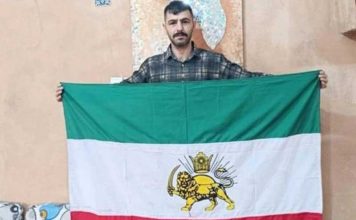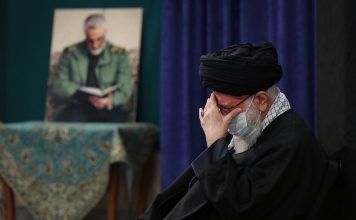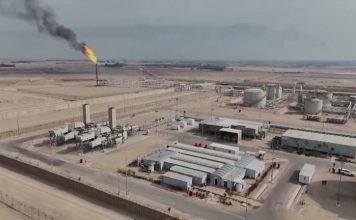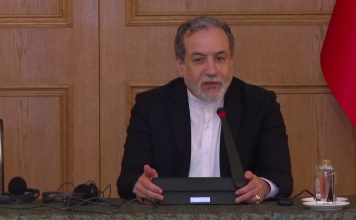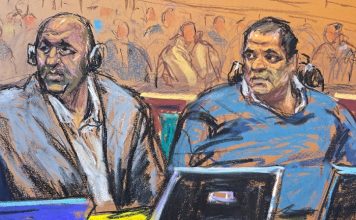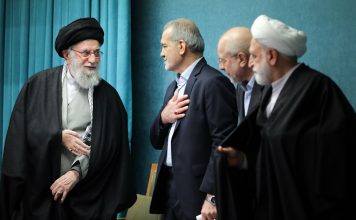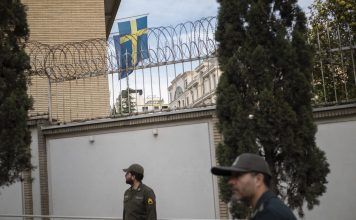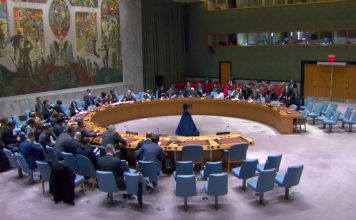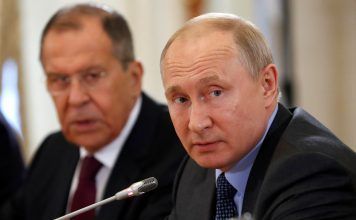The Islamic Republic has developed a policy to manage political prisoners and is detaining or releasing them based on the degree of risk that they pose to the regime, according to Roya Boroumand, a human-rights campaigner and co-founder of the Washington-based Abdorrahman Boroumand Center (ABC).
“The Islamic Republic of Iran, like many other authoritarian regimes, has a system to manage political prisoners and calculate the cost effectiveness of detaining or releasing them, or giving them furlough,” Boroumand told Kayhan Life. “These decisions are based on many factors, which among other things, are linked to how harmful the authorities perceive that individual’s activities to be, and how they can undermine the official narrative, organize opposition to the state, or influence various categories of citizens, such as the youth.”
[aesop_image img=”https://kayhanlife.com/wp-content/uploads/2021/08/killed_prisoners.jpg” panorama=”off” credit=”Pictures of some prisoners who were killed under torture and executed in Iran. Kayhan London./ ” align=”center” lightbox=”on” captionsrc=”custom” captionposition=”left” revealfx=”off” overlay_revealfx=”off”]
A March 18 report by the US-based Human Rights Activists News Agency (HRANA) found that nearly 30,000 people had been arrested in Iran between March 2022 and March2023, including 28,419 people who were detained for exercising their right to free speech.
The report also said 193 children, 328 women’s rights activists and 253 members of ethnic minorities had been detained.
The number of political prisoners and politically motivated executions in Iran has increased sharply ever since the nationwide anti-government protests which broke out after the death in September 22 of 22-year-old Mahsa Jina Amini.
In the latest set of executions, three political prisoners — Mohammad Barahoui Anjomani, Mohammad-Karim Barkazaei and Edris Bilrani — were secretly executed on Nov. 14 at Zahedan prison in Iran’s Sistan-Baluchistan province.
Amini was arrested by Iran’s morality police for failing to observe the country’s compulsory hijab laws. According to United Nations officials, Amini was tortured while in police custody, and later died of her injuries.
Women in Iran have become increasingly vocal about gender inequality and violence against women and girls perpetrated by government officials. More than 500 women’s rights advocates are currently imprisoned in the country for their activism.
Women’s Activism in Iran Continues, Despite Street Protests Dying Down in Face of State Repression
“Who among these people ends up staying in prison for lengthy periods, gets executed, or released depends on many factors. These include whether the state feels that the prisoner would resume their activities if released, their national and international notoriety, the degree of activism about them, and the visibility they get in the media,” Boroumand said.
Human rights advocate Narges Mohammadi was arrested in May 2015 and sentenced to ten years in prison on charges including “crimes against national security” and “spreading propaganda against the system.” Mohammadi has been arrested 13 times, convicted five times, and sentenced to a total of 31 years in prison and 154 lashes.
Mohammadi has gained worldwide recognition in recent years and she was awarded the Noble Peace Prize in October 2023 for her activism. Despite calls for her release, Mohammadi remains in prison. She has been deliberately denied healthcare as punishment for her public campaigning, according to a statement on Amnesty International’s website.
Iranian actress Azadeh Samadi was arrested in July, sentenced to two months in prison and ordered to undergo psychological treatment for an “antisocial illness,” after wearing a hat instead of the mandatory hijab while attending a funeral. Following her release, Samadi was stopped on Nov. 20 at Tehran’s Imam Khomeini Airport on her way to a film festival in Goa, India. Her passport was confiscated and authorities issued the actress with a travel ban. No reason was given for the ban.
“Other factors which affect how the regime treat political prisoners include the extent of the person’s organizational skills, his or her ability to articulate ideas or inform about human rights violations, corruption, state incompetence or any other issue, and their links to the outside world,” Boroumand said.
The province of Baluchistan, where the executions took place last week, is home to the Sunni Baluch minority group which opposes rule by the Iranian state and seeks greater rights for its people. The three men were alleged to have been members of Jaish ul-Adl, a Sunni Islamist militant group which has been held responsible for attacks against civilians and military personnel in Iran.
The charges against the men included, “membership and collaboration with Jaish ul-Adl, receiving military training, transporting and concealing bomb-making materials, as well as participating in two bombing operations in Zahedan, an unsuccessful bombing in Zabol county, and two bombing operations in Zahedan’s police station.”
A Nov. 13 report by Iran Human Rights (IHRNGO), an Oslo-based nongovernmental organization, recorded 114 executions including 24 Baluch minorities, five of whom received the death penalty for collaborating with opposition groups, since the start of the Israel-Hamas war on Oct. 7. Iran’s regime funds and supports several militia groups engaged in the war, including Hamas, Lebanese Hezbollah and Yemen’s Houthis.
Meanwhile, Mahsa Yazdani, the mother of 20-year-old Mohammad Javad Zahedi — who was shot several times at close range and killed by security forces at an anti-regime protest in September 2022 — was sentenced by a court in Iran on Nov. 2 to 13 years in prison. Yazdani was charged with blasphemy, incitement, insulting the supreme leader, and spreading anti-regime propaganda, after she demanded justice for her son on social media. Yazdani will serve the first five years of her sentence without any chance of parole.
“The end of the authoritarian regime is the most effective and sustainable way to end this state of affairs and to prevent generation and after generation of activists wasting their youth, their health and their lives in Iran’s prisons,” Boroumand said.
“In the absence of such change, giving visibility to the lesser known prisoners, organizing joint campaigns by stakeholders regardless of their political differences to get the international community to react, and making the release of all political prisoners one of their top demands will go a long way to protect prisoners and get some of them released. The Islamic Republic authorities need to know that these people will not be forgotten and keeping them has a political cost they can’t afford,” Boroumand added.
https://kayhanlife.com/society/human-rights/women-set-fire-to-prison-ward-near-tehran-irna/

